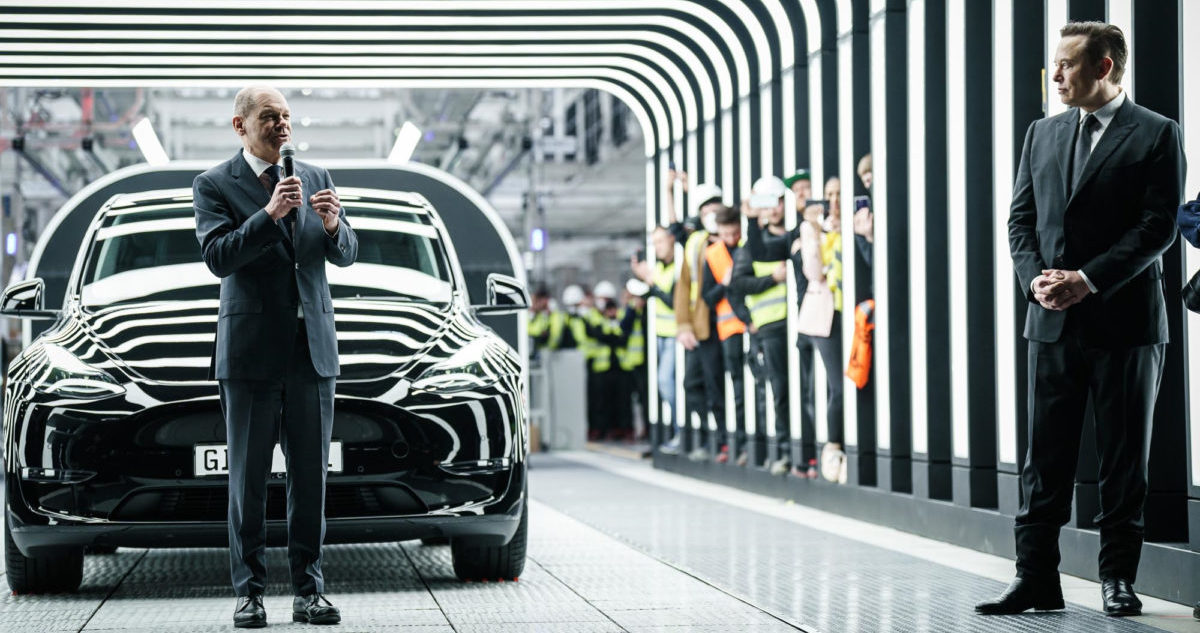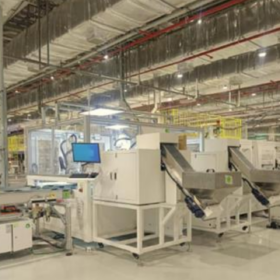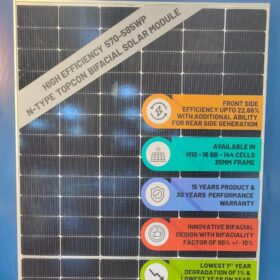From pv magazine Global
Tesla boss Elon Musk insisted on coming to Berlin from California for the official start of production of the first gigafactory in Europe. Just outside the capital, in Grünheide, in Brandenburg, the first Tesla Model Y rolled off the assembly line on Tuesday, and Musk handed it over to the new owners. A total of 30 cars were handed over to customers.
Brandenburg’s prime minister, Dietmar Woidke (SPD), also attended the commissioning ceremony; as did federal chancellor Olaf Scholz (SPD); federal economics minister Robert Habeck; and Brandenburg’s economics minister, Jörg Steinbach, and environment minister, Axel Vogel.
“The fact that you have chosen Brandenburg is good for Tesla and good for the future region of Berlin-Brandenburg,” explained Woidke in his speech at the opening of the factory. “Tesla is the outstanding example of Brandenburg’s new economic dynamic. The first European gigafactory attracts a lot of attention everywhere. This ensures that our country becomes even better known as a high-tech location,” Woidke continued. The German state sees good opportunities to attract more investors. There are already plans for lithium-ion battery production in Brandenburg. Overall, a value chain for electromobility could emerge, so Woidke hopes.
Musk tweeted “Thank you Germany” on the day of the opening, in German. He had announced the construction of the factory in Brandenburg in mid-November 2019. However, he only received the final approval two weeks ago. Before that, Tesla built at record speed at its own risk, and with some preliminary approval from the authorities. Numerous requirements still had to be met before production could start. Recently, the factory’s water supply caused a stir but this issue seems to be solved now.
The factory will create thousands of jobs. Tesla plans to produce up to 500,000 Model Y electric vehicles at the Grünheide site in the first expansion stage. The vehicle is an, approximately two-ton, mid-size car in the manufacturer’s range, with a starting price of around €64,000. The range should be around 500km. In addition, a production facility for battery cells will also be set up at the site.
This content is protected by copyright and may not be reused. If you want to cooperate with us and would like to reuse some of our content, please contact: editors@pv-magazine.com.









By submitting this form you agree to pv magazine using your data for the purposes of publishing your comment.
Your personal data will only be disclosed or otherwise transmitted to third parties for the purposes of spam filtering or if this is necessary for technical maintenance of the website. Any other transfer to third parties will not take place unless this is justified on the basis of applicable data protection regulations or if pv magazine is legally obliged to do so.
You may revoke this consent at any time with effect for the future, in which case your personal data will be deleted immediately. Otherwise, your data will be deleted if pv magazine has processed your request or the purpose of data storage is fulfilled.
Further information on data privacy can be found in our Data Protection Policy.